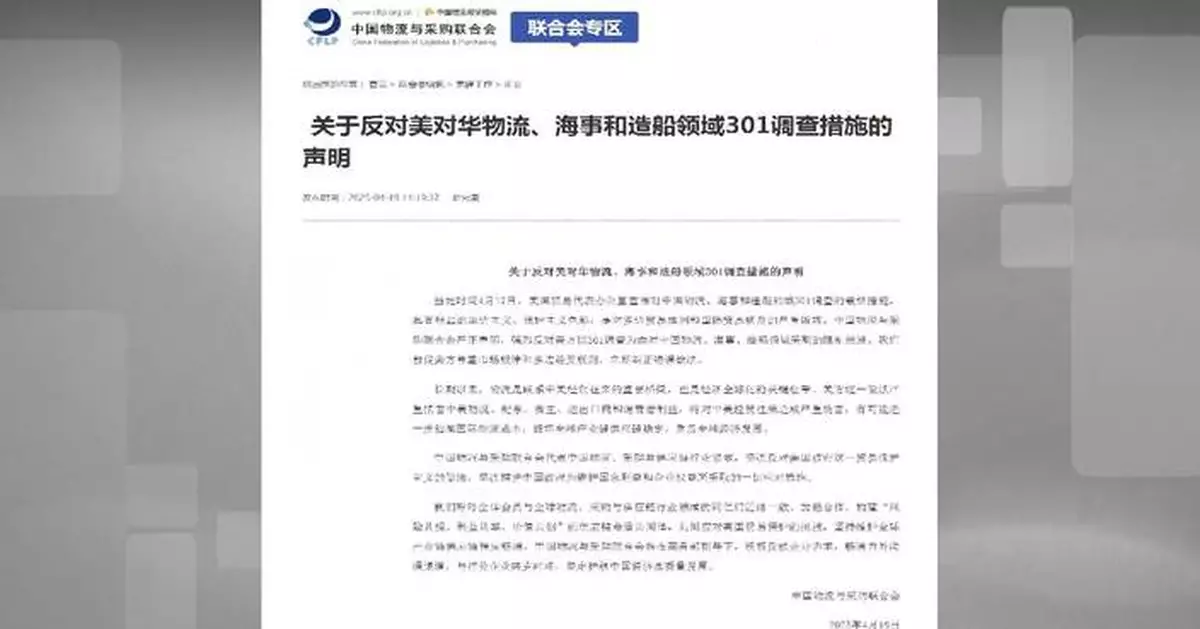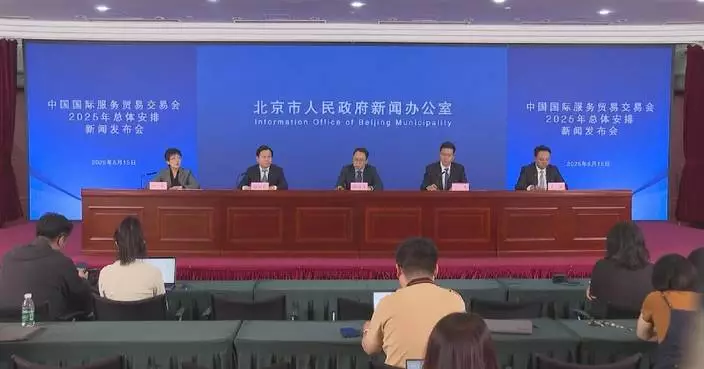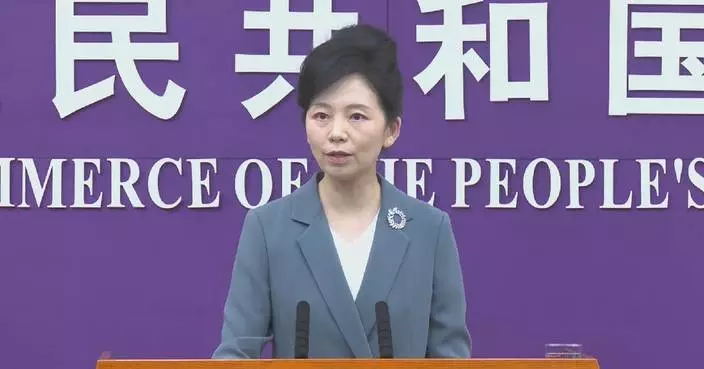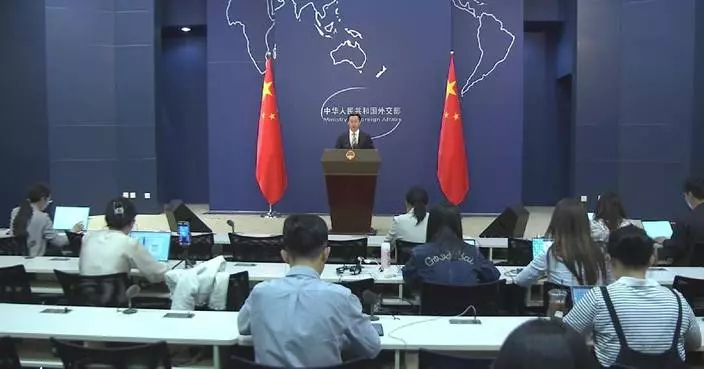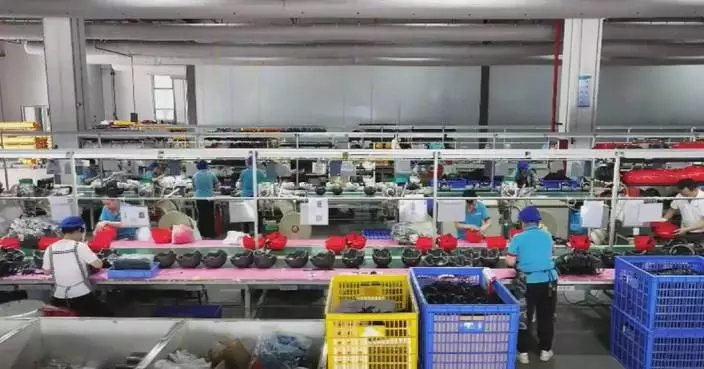Three Chinese industrial associations have voiced strong opposition to the restrictive measures imposed by the United States, following a Section 301 investigation into China's maritime, logistics and shipbuilding sectors.
The U.S. move will severely undermine the interests of logistics providers, ship and cargo owners, importers and exporters, and consumers in both countries, harming China-U.S. economic and trade exchange, the China Federation of Logistics and Purchasing said in a statement on Saturday.
The move is likely to raise international logistics costs, undermine the stability of global industrial and supply chains, and endanger global economic growth, the federation said.
It urges its members, along with global peers in the logistics, purchasing and supply chain industries, to strengthen cooperation to safeguard the stability and smooth operations of global industrial and supply chains in the face of the challenges posed by U.S. trade protectionism. Echoing the federation's remarks, the China Association of the National Shipbuilding Industry said that the U.S. measures are based on false accusations and flawed investigations, calling them an "unjustified attack" on China's shipbuilding industry and a "blatant violation" of international trade rules.
The association warned that instead of reviving the U.S. shipbuilding industry, such measures will likely drive up international shipping costs and further exacerbate inflationary pressures in the United States -- ultimately harming the livelihoods of the American people.
Moreover, the China Shipowners' Association emphasized the critical role that Chinese shipowners play in maintaining smooth operations of the global supply chain.
It noted that Chinese shipping companies adhere strictly to international trade norms, and have consistently provided stable and reliable logistics services to support global trade, including trade with the United States.
It said that United States should halt its politically driven investigations and discriminatory measures to avoid bringing further damage to the global maritime, logistics and shipbuilding sectors.
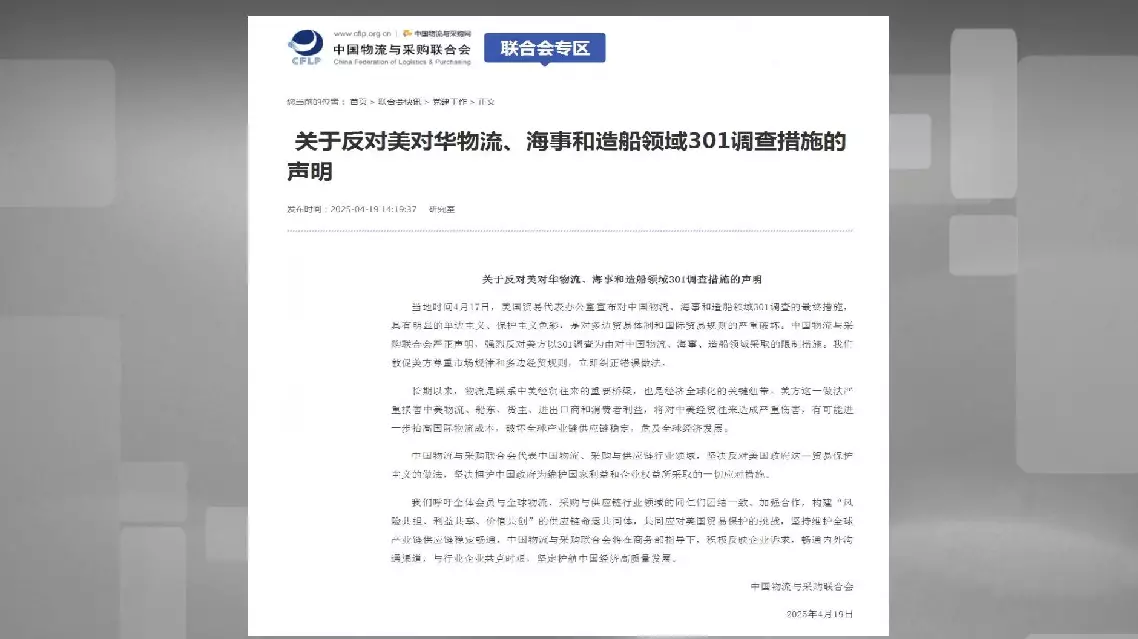
Chinese industry associations oppose U.S. restrictive measures targeting maritime, logistics, shipbuilding sectors
The U.S. Department of Commerce has issued new guidance declaring that the use of Huawei's Ascend AI chips "anywhere in the world" may violate U.S. export control regulations.
The statement, released by the department's Bureau of Industry and Security on Tuesday, explicitly warns of the potential consequences of enabling U.S.-origin "AI chips to be used in training or inference for Chinese AI models."
In response to the statement, the Chinese Ministry of Commerce vowed on Thursday to take resolute measures to safeguard the legitimate rights and interests of Chinese enterprises.
While the move aligns with Washington's broader strategy to curb China's access to advanced semiconductor technologies, it also underscores a deeper anxiety: the fear of losing its global leadership in artificial intelligence.
NVIDIA CEO Jensen Huang said that China is "not behind" the U.S. in artificial intelligence and called the race in AI development a "long-term, infinite race," as he spoke to reporters at a tech conference in Washington, D.C., last month.
During a recent congressional hearing, U.S. tech leaders, including OpenAI CEO Sam Altman and executives from Microsoft and chipmaker Advanced Micro Devices, testified on Capitol Hill to urge lawmakers to streamline policy for AI-related projects and fundraising in order to race against China in AI development.
The latest guideline follows a period of regulatory volatility. After walking back the previously announced "AI Diffusion Rule" from the Biden administration, the U.S. has now pivoted toward this more aggressive interpretation – a shift that highlights the inherent difficulties in enforcing such extraterritorial bans.
Convincing sovereign nations to follow U.S. law, particularly when it limits their own tech development, poses significant diplomatic and operational challenges.
"The Trump administration will pursue a bold, inclusive strategy to American AI technology with trusted foreign countries around the world," Tuesday's statement says.
Implementing a global enforcement regime would likely require bilateral negotiations with dozens of countries – a time-consuming and politically fraught process that risks diminishing returns.
In practice, these efforts may only reinforce China's determination to achieve technological self-sufficiency. Huawei's trajectory stands as a case in point.
Since coming under U.S. sanctions in 2019, the company has made notable advances in AI and chip development. Most recently, the company invited select Chinese tech companies to test its most powerful processor yet, the Ascend 910D, the Wall Street Journal reported, citing sources familiar with the matter. The chip is expected to rival – or even surpass – Nvidia's H100 in performance.
If such innovation continues to emerge under pressure, Washington may need to ask itself: Is the goal to contain China or to compel it to innovate faster?

New US guidance on Huawei chip usage reveals deeper fears, tougher realities



